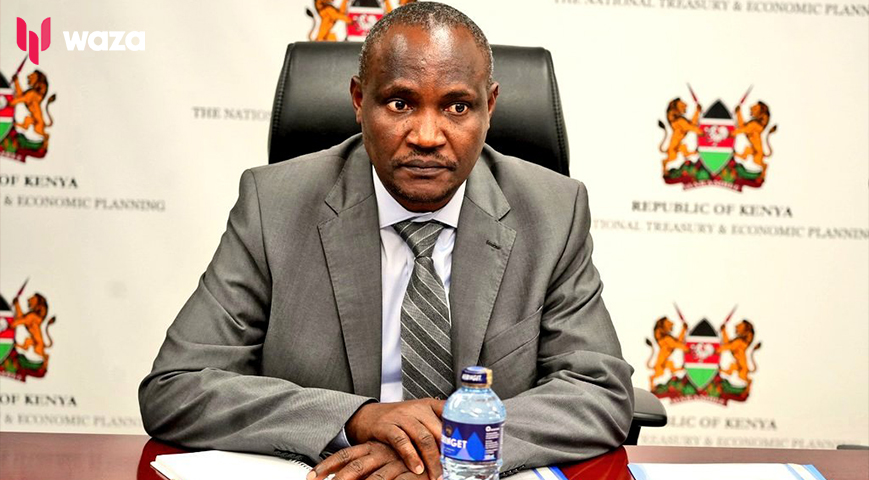John Mbadi, the newly appointed Cabinet Secretary for the Treasury, is now grappling with explaining the poor state of the public finances he once openly criticized. Tasked with the urgent challenge of reviving Kenya's struggling economy, Mbadi has faced intense scrutiny since joining President Ruto's government.
Once a vocal critic of Ruto's administration, Mbadi now finds himself defending its fiscal policies, even as he is repeatedly summoned by Parliament Committees to address controversial matters. One of the key issues he’s faced is the $1.85 billion (Ksh.239 billion) takeover deal of Jomo Kenyatta International Airport (JKIA) by Adani Airport Holdings Limited.

Despite legal challenges and public outcry, Mbadi told the National Assembly's Public Investment Committee on Commercial Affairs and Energy that his department has no records tying the Indian company to corruption.
However, during a Senate Transport Committee session, Mbadi faced new allegations from Kisii Senator Richard Onyonka, who introduced letters from three companies that had expressed interest in Kenya Airports Authority (KAA) but were allegedly ignored. Onyonka argued that KAA had claimed only Adani was interested, but Mbadi insisted that no correspondence had been sent to the Treasury regarding any company other than Adani.
Did you read this?
Mbadi also faced backlash after backtracking on his previous statement that there were no funds to hire Junior Secondary School (JSS) teachers on permanent terms.
He had initially stated in a Citizen TV interview that the Treasury lacked the resources to employ 20,000 teachers, but later admitted he was misinformed about the budgetary situation.
Once an outspoken opponent of President Ruto's government, Mbadi had previously urged Parliament to reject Ruto's Cabinet nominees in 2022, claiming that most were unqualified or had integrity issues. Despite his earlier criticism, Mbadi now finds himself in the same administration he once mocked, facing the difficult task of managing public expenditure amid a shrinking fiscal space and underperforming revenues.
In his efforts to boost the economy, Mbadi has pledged to leverage technology to increase revenue for the Kenya Revenue Authority (KRA). He emphasized the need for a state-of-the-art system to close loopholes that allow corruption. In the financial year 2023/24, KRA collected Ksh.2.4 trillion, an increase from Ksh.2.16 trillion in the previous year.
However, President Ruto has tasked KRA with doubling its collections to around Ksh.4 trillion annually to help manage debt and fund government projects.
Mbadi also promised to ensure transparency in the budgeting process to minimize wasteful spending of public resources.










